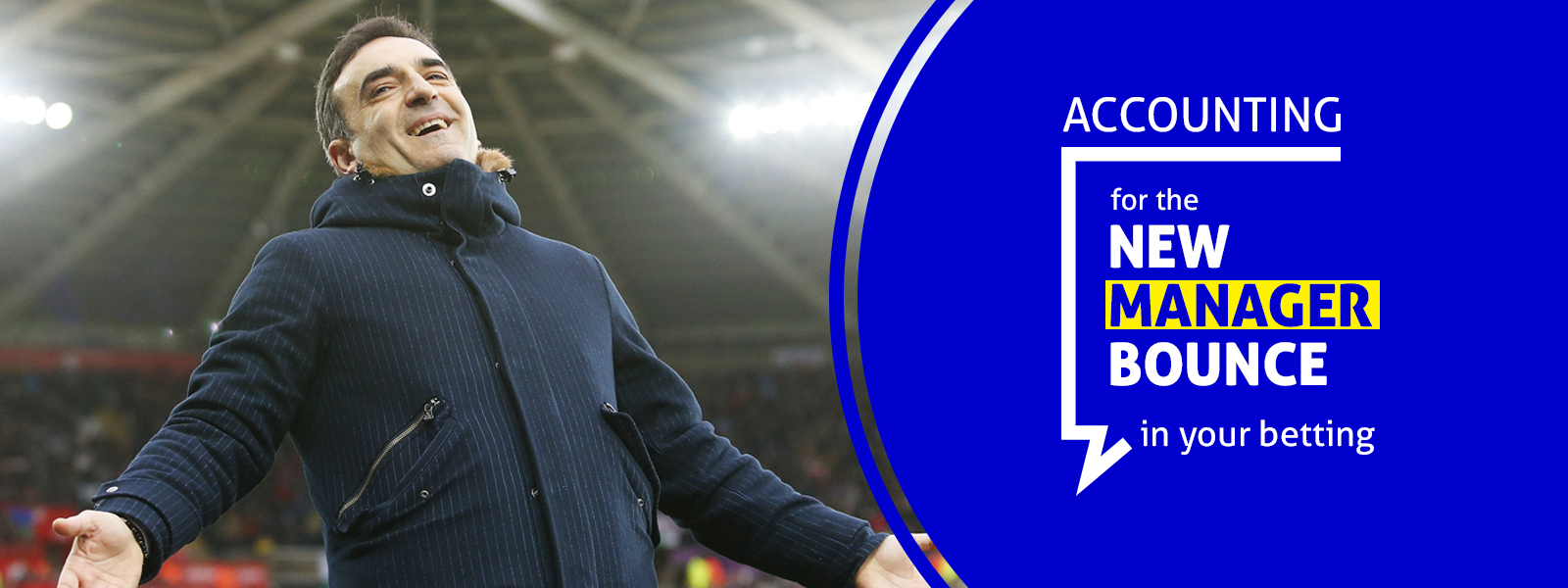
Accounting The "New Manager Bounce" In Your Betting Strategy
Once one chairman pulls the trigger and changes manager at a relegation-threatened club, every other club around them sits up and takes notice. This year, it took Crystal Palace just a handful of games before they replaced Frank De Boer with Roy Hodgson.Since then, Leicester City, Everton, West Ham United, West Bromwich Albion, Swansea City, Stoke City and now Watford have all followed suit.
It is something you must pay attention to when betting on football as the ‘new manager bounce’ is a phenomenon that refers to clubs instantly improving their results when they make a change in management.
Palace hadn’t scored a point when Hodgson was appointed; they are now 13th in the table. Leicester and Everton are now in the top half. West Ham went from no-hopers to getting results against Chelsea and Arsenal, and even Swansea City have shown improvement under Carlos Carvalhal.
It is a standard pattern whatever club, division or nation you follow or support.
However, it doesn’t always work out straight away. When David Moyes succeeded Slaven Bilic at West Ham, it took a few games, but slowly things started to turn around. Analysis has shown that any new manager bounce begins to lose its impact after five games.
Furthermore, if a manager joins a club that has lost its last four or five matches, chances of a significant improvement straightaway are slim. Hodgson was arguably an exception to this rule but even he took only one win from his next five.
How does this fit into your betting strategy? Well, if you are looking at betting on a game and one of the clubs has changed its manager in the last five games, then you should be looking at giving them more of a chance than their odds may suggest.
You need to then look at other factors – form, team selection, injuries, etc. – before you decide whether that means it becomes a game you avoid or look to bet on.
Previous analysis in this area showed that (using Premier League data since 1992) 74% of managers achieve a bounce. Furthermore, there is more likely to be a bounce in November or December.
Everton is the perfect case in point here. Ronald Koeman left in October and Sam Allardyce, a specialist in achieving quick results at a club, took over the month after. He has driven them on towards European ambitions since taking over.
Everton lost none of their next five matches so adopting a policy of backing them to win or draw post-Allardyce’s appointment would have been a profitable approach. Of course, they were a club full of talented players at the wrong end of the table so that wouldn’t have represented a huge gamble.
Another important point is that only 30% of new managers helped their side finish the season higher than when they arrived. How do you factor that it into your betting strategy? Once the five-match manager bounce phase is over, the club will return towards its usual form, and you can use that when placing your bets.
When you place your next bet remember to check our Premium Soccer Prediction










